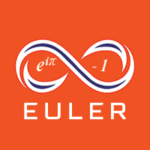Safety Concerns and Clinical Risks of Platelet-Rich Plasma Combined with ACell Matrix for Hair Loss Treatment

Abstract Platelet-rich plasma (PRP) injections have gained popularity as a non-surgical intervention for androgenetic alopecia and other forms of hair loss. The addition of ACell, a porcine-derived extracellular matrix, is purported to enhance the regenerative effects of PRP by providing a scaffold for tissue repair. However, the combination of PRP and ACell matrix introduces potential […]
The Relevance of Spirulina to BRAF V600E-Mutated Tumors: A Preclinical Evaluation with Insights into Wound-Healing Properties

Abstract Spirulina, a cyanobacteria rich in bioactive compounds such as phycocyanin, beta-carotene, and polysaccharides, has been extensively studied for its anti-cancer properties. This article evaluates its potential relevance to tumors driven by BRAF V600E mutations, which activate the MAPK signaling pathway, promoting oncogenesis in cancers like melanoma and colorectal carcinoma. Preclinical studies suggest spirulina may […]
Alchemy at Franeker in the Age of AI: Investigating Historical Molecular Compounds for Longevity Potential

Abstract The University of Franeker (1585–1811), a significant academic institution in the Netherlands, provides a historical context to explore the study of alchemy and its relevance in the age of artificial intelligence (AI). This article examines whether alchemy, a protoscience focused on transmutation and longevity, was part of Franeker’s scholarly pursuits, particularly given its faculties […]
Reassessing the Relevance of Latin in the AI Era: Insights from Traditional European Universities and the Legacy of Franeker

Abstract The rapid advancement of artificial intelligence (AI) technologies has prompted a reevaluation of traditional educational practices, including the teaching of Latin in European universities. This article examines the historical significance of Latin as a cornerstone of academic instruction, with a particular focus on its role at the University of Franeker (1585–1811), the second-oldest university […]
Natural Compounds as Potential Adjuncts for BRAF V600E-Mutated Tumors During Tovorafenib Drug Holidays: A Preclinical Perspective

Abstract Tovorafenib, an FDA-approved type II RAF inhibitor, targets BRAF V600E mutations and fusions in tumors such as pediatric low-grade gliomas. However, resistance or intolerable side effects may necessitate a drug holiday, prompting exploration of alternative strategies. This analysis evaluates natural compounds—sulforaphane, pomegranate extract (including ellagic acid), quercetin, and curcumin—for their potential relevance to BRAF […]
Epidemiology of Infectious Diseases in the Netherlands: A Case Study of Recent Outbreaks

Key Points – Research suggests the Netherlands faces ongoing infectious disease challenges, with recent outbreaks of pertussis and Mycoplasma pneumoniae in 2023-2024. – It seems likely that reduced immunity from COVID-19 restrictions contributed to these outbreaks, alongside high vaccination rates. – The evidence leans toward effective public health measures, like vaccination and surveillance, being crucial […]
